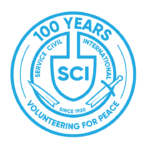Dear all,
We are opening a call for LTV (Long Term Volunteering) candidates to support the work with people with disabilities in Els avets Community in Molia, Catalunya.
We are looking for:
1 volunteer starting mid April 2018
1 volunteer starting July 2018
2 volunteers starting September 2018
Please find detailed description and further information here!
You may also find the article on the call for volunteers here and please don’t hesitate to share it and help us spread the article to the world:)
Thank you!
Nupelda Yüce (voluntària EVS)
Outgoing Placement Officer –
Camps de voluntariat
outgoing@sci-cat.org
www.scicat.org
C.Carme 95 baixos. 2a.
08001 Barcelona
Tel. 934 417.079.
PD: Soc la Nupelda, una voluntària kurda fent el projecte EVS amb l’SCI Catalunya. Encara estic aprenent català, disculpeu els meus errors!

